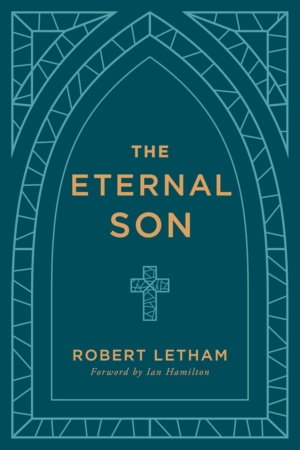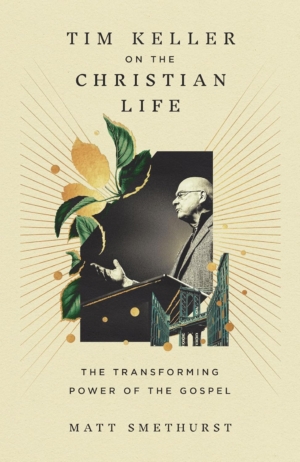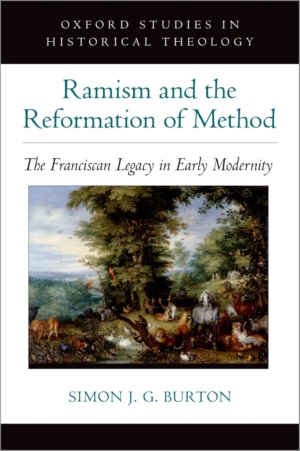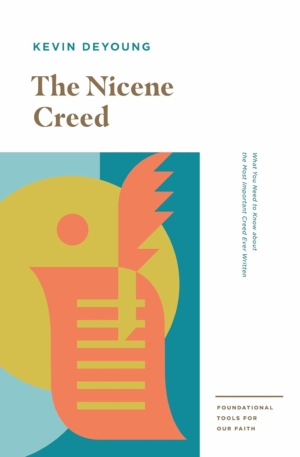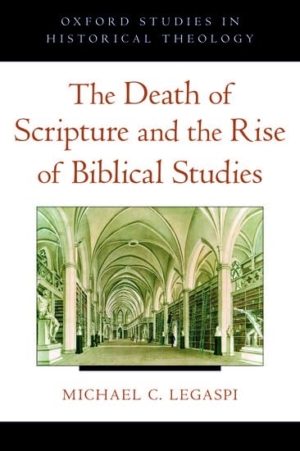What David says in Psalm 18:20–30 is a little bit startling, and his statements should probably give us pause before we are willing to say them in reference to ourselves. Continue reading →
Author Archives: Harrison Perkins
From Glory To Glory: The Story Of Christ In Psalms 15–24 (Part 8)—Psalm 18 And The Motivation For Praise
What motivates us to give thanks? It is when we realize the gravity of some good given to us. Psalm 18 is about the thanks that grows out of God pulling his king from death’s jaws. The previous article looked at how, . . . Continue reading →
Review: The Eternal Son By Robert Letham
Jesus Christ is the center of Christianity. Our faith is named after him. One of the crucial questions then must be: Who is Jesus Christ? In his new volume, The Eternal Son, Robert Letham tackles this question about Christ’s identity. This book . . . Continue reading →
Because Of Christ’s Bodily Ascension Christ Has Instituted Word, Sacraments, And Prayer
We cannot take direct hold of Christ himself in a physical sense because he is bodily in heaven. We are not directly surrounded by his physical kingdom in the new creation yet, even though he reigns in heaven. So, his promises must . . . Continue reading →
From Glory To Glory: The Story Of Christ In Psalms 15–24 (Part 7)—Psalm 18 And Christ’s Cords Of Death
The time when I felt closest to death was years ago as I was swimming in the Gulf of Mexico, trying to get back to shore. The trouble occurred while I was still a long distance from shore and felt this horrible . . . Continue reading →
Review: Tim Keller on the Christian Life: The Transforming Power of the Gospel By Matt Smethurst
Crossway’s series about famous theologians on the Christian life has covered centuries of church history to help us see how some of the church’s brightest lights have offered insight about how to live faithfully and be well-equipped before the Lord. In this . . . Continue reading →
Continuing In Communion With God—The Sin Spiral (Part 5): Genesis 4:1–26 A Clash of Legacies
Everybody loves a good inspirational poster. One of my favorites is the picture of the single flower sprouting through the garbage in a landfill with the caption, “Hope grows in a dump.” The idea is that the prospect of good things can . . . Continue reading →
Review: Ramism And The Reformation Of Method: The Franciscan Legacy In Early Modernity By Simon J. G. Burton
Philosophy and the way that we frame issues has always played an important role in expressing the truth. We have an “apparatus” to our thought. We use certain conventions to be able to articulate what we mean even in theology. Whether we . . . Continue reading →
Continuing In Communion With God—The Sin Spiral (Part 4): Genesis 4:1–7 The Heart Of Worship
Authenticity is the banner of our time for what is supposed to be good. The notion is that striving for conformity to any norm outside of ourselves means we are not genuine. That view results in antagonism toward every stable aspect of . . . Continue reading →
The Principles Of Reformed Covenant Theology Unify The Bible’s Story
The principles of covenant theology unify the Bible’s story about God redeeming a people for himself. Even though we have to read our Bibles well to discern the doctrines of covenant theology, in return covenant theology helps us to read our Bibles . . . Continue reading →
Review: The Nicene Creed: Why You Need To Know About The Most Important Creed Ever Written By Kevin DeYoung
This year, 2025, marks the 1700th anniversary of the Nicene Creed, which is the whole Christian church’s most foundational statement about the Trinity. Protestants (of the sound varieties), Roman Catholics, and the Eastern Orthodox all share agreement that the doctrines coming from . . . Continue reading →
Continuing In Communion With God—The Sin Spiral (Part 3): Genesis 3:8–24 Paradise Lost
Although biased as a Birminghamian, I think that southerners have great skill for developing words that are most helpful and useful to get at realities of life. Y’all is perhaps our most famous. But another highly useful one is comeuppance. This word . . . Continue reading →
Review: The Death Of Scripture And The Rise Of Biblical Studies By Michael C. Legaspi
Is the church’s Bible also the academy’s Bible? Although we might even ask what this question means, Michael Legaspi argues that the Bible as Scripture is different than the Bible of the academy. In this respect, he indicates a gap between uses . . . Continue reading →
Continuing In Communion With God—The Sin Spiral (Part 2): Genesis 3:1–7 A Listening Problem
Certain phrases tend to get my attention, and one of them is, “Are you even paying attention to me?” It is one line that, at least in home life, signals that I appear to be focused somewhere other than where my attention . . . Continue reading →
Our Sins Have Already Been Judged
Believers were already judged at the cross (Gal 2: 19-20), so there is no future review of our works—no slideshows of our failures before the heavenly court—to determine whether we truly measure up. Harrison Perkins | Reformed Covenant Theology: A Systematic Introduction, . . . Continue reading →
Continuing In Communion With God—The Sin Spiral (Part 1): Genesis 1–2 Introduction
Genesis is a massive book of Scripture that has long captured the Christian imagination. Its opening few chapters alone have sparked more discussion and have motivated more explanation and commentary than even some other Old Testament books. It contains some of the . . . Continue reading →
From Glory To Glory: The Story Of Christ In Psalms 15–24 (Part 6)—Psalm 17 And Christ’s Anticipation Of Resurrection
Psalm 17 is about focusing on satisfaction in God even amid our greatest troubles. We find the psalmist here in great distress, calling to God to vindicate him against the wicked. Psalm 17 records his prayer declaring that he was in the . . . Continue reading →
From Glory To Glory: The Story Of Christ In Psalms 15–24 (Part 5)—Psalm 17 And Satisfaction With The Sight Of God
“Keep your eye on the prize.” “Don’t take your eye off the ball.” We say these sorts of things for situations when we know that focus is extremely important. We miss hitting the ball when we are looking elsewhere than the pitch . . . Continue reading →
God’s Justice Is Not Arbitrary
God cannot let sin go unpunished (Rom 3:25). The penalty for sin… is not a matter of God’s feelings, as if He is simply angry about being wronged…. death is the legal and just consequence for sin, ‘the curse of the law’ that . . . Continue reading →
From Glory To Glory: The Story Of Christ In Psalms 15–24 (Part 4)—Psalm 16 And Christ’s Resurrection
Building a fire requires balancing. Specifically, you have to balance the use of kindling with the use of longer burning fuel. Kindling gets hot and bright fast, but it also fizzles quickly and fades. Fire has to be fed by sustaining fuel. . . . Continue reading →

